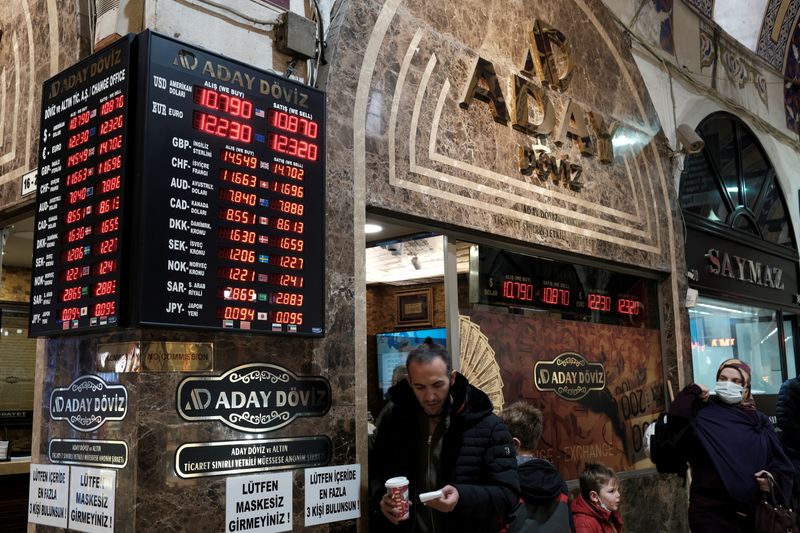Who is Kevin Hassett? Wolfe looks at the Trump ally tipped to become Fed Chair.
ISTANBUL (Reuters) -Turkey on Friday restricted lending to many companies with more than $1 million in foreign currency cash, the latest step to reverse a tumbling foreign-exchange rate by squeezing banks and businesses, and the lira rose as much as 5%.
After most local markets had closed for the week, a state regulator said that if companies had more than 15 million lira ($908,000) of forex cash assets, and they exceed 10% of total assets or annual revenues, they will not be allowed to receive new lira loans.
The new rule was the latest in a raft of government and central bank measures since a historic currency crash in December sent inflation soaring. The BDDK banking watchdog said it would strengthen financial stability.
Analysts said Turkey's currency could rise more when markets re-open on Monday because the measure could force many large and medium-sized companies to convert forex assets to lira in order to maintain access to credit.
The lira rallied to as much as 16.4975 versus the dollar, its strongest in three weeks, as the measures were first revealed by state-run Anadolu agency. It was worth 16.85 at 1904 GMT, up 3% on its best trading day of the year.
The currency crisis in December was set off by a series of unorthodox interest rate cuts that President Tayyip Erdogan had sought from the central bank despite rising prices.
The lira shed 44% of its value last year and remains down 22% this year on concerns over policy, depleted official reserves, a rising current account deficit and some investor and saver fears of capital controls.
Well over half of deposits in Turkey are in hard currency as a hedge against lira depreciation and inflation. The BDDK measure seeks to tackle that, said Enver Erkan, chief economist at Tera Yatirim.
"The basic perspective here is to trim the foreign exchange demand that is deemed 'unnecessary' or made for speculative purposes," he wrote.
The lira depreciation and fallout from the war in Ukraine has sent Turkey's annual inflation rate to a 24-year high of 73.5%, severely straining household budgets ahead of tight elections for Erdogan by mid-2023.
The lending restriction is the latest step that has placed state institutions, especially the central bank, in a dominant role in the forex market.
Among them are central bank market interventions to boost the lira, a state-backed FX-protected deposit scheme, and requirements for exporters to sell a portion of forex revenues to the central bank.
($1 = 16.5156 liras)
